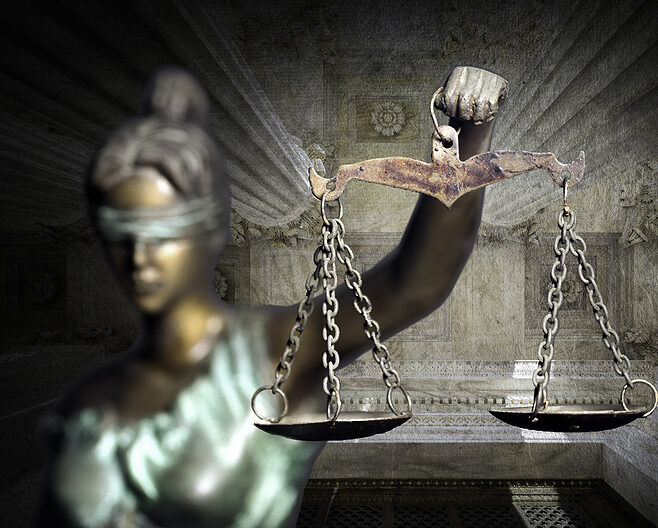The government ran out of money to pay for justice.
That’s the stark reality that federal public defense lawyers across the country are facing. With nearly three months remaining in the fiscal year, hundreds of dedicated “panel lawyers” (private attorneys who represent accused individuals unable to afford a lawyer) stopped receiving payment for their work. The reason for this funding crisis was not waste, fraud, or mismanagement. It was a conscious decision by Congress in March to pass a continuing resolution that froze all Judicial Branch funding at 2024 levels for a full year, ignoring repeated warnings that such a move would be catastrophic.
This is not just a bureaucratic hiccup; it is an assault on one of our nation’s most fundamental promises. The Sixth Amendment guarantees that a person accused of a crime has the right to counsel. For more than 90 percent of federal defendants who cannot afford to hire their own lawyer, public defense attorneys uphold this promise. While some are salaried public defenders, panel attorneys stand in the gap. These small business owners take on cases, working for months, even years, on a promise from the federal government that they will be paid for their work. On July 3rd, the federal government broke its promise.
The human cost of this decision is profound and far-reaching. Most of the attorneys being left in limbo are not wealthy corporate lawyers. Approximately 85 percent of panel attorneys are solo practitioners or work in small firms. For them, this payment is not a windfall; it is the lifeblood of their business, covering rent, utilities, staff salaries, and health insurance. Many are also saddled with crushing student loan debt, with a recent report showing the average law school graduate carries debt of more than $143,000.
The impact extends far beyond the lawyers. Also unpaid are the bills of investigators, many of whom are former law enforcement officers and military veterans, as well as paralegals, social workers, interpreters, expert witnesses, and other professionals essential to building a fair defense. The government’s non-payment forces these professionals to make impossible choices. They are taking out personal loans, risking default on mortgages, and in some cases, laying off staff. The government’s proposed “solution” of robbing Peter to pay Paul by using funds from the FY26 budget to cover these past-due debts will only ensure the crisis repeats itself next year.
This funding shortfall is a symptom of a deeply misguided set of priorities. While public defense has been left to flounder, Congress has historically found hundreds of millions more for the Department of Justice. The message is clear: the U.S. government will fund the prosecution of cases, but we won’t fund the defense of the people. This lopsided approach erodes the integrity of our justice system. The defense function doesn’t control the number of people arrested or the complexity of the cases; it simply responds to the actions of the government.
Consequently, as the pool of dedicated panel lawyers and service providers shrinks, cases are being delayed. Delays mean witnesses move, memories fade, and evidence is lost, all of which increase the risk of unjust and inaccurate outcomes. It undermines community confidence in a legal system that cannot deliver timely, reliable justice.
This crisis also impacts public defender offices, which, by the end of FY25, will have been operating under a hiring freeze for nearly two years. With hundreds of positions unfilled and training budgets slashed, these defender offices face unsustainable workloads, which will inevitably lead to burnout and additional staffing shortages.
Federal public defense lawyers are a cornerstone of our democracy. They are the frontline advocates who stand in the gap between the average person and the power of the government. They are the ones who, in cases ranging from petty crime to the most high-profile trials, protect clients’ constitutional rights. They do this work because they believe in the constitution, due process and equal justice.
The quality of our justice system is directly dependent on the effectiveness of our public defense. When we shortchange defenders, we are not just failing lawyers; we are failing the American promise of fair trials. We are inviting an erosion of the principles of integrity, accountability, and democracy that we claim to hold so dear.
To prevent this crisis, Congress must appropriate funding for federal public defense that fully covers both the outstanding backpay and a full year of operations—without triggering further layoffs or deferred payments. Public defense is not a discretionary service; it is a constitutional imperative that safeguards our most fundamental rights.



